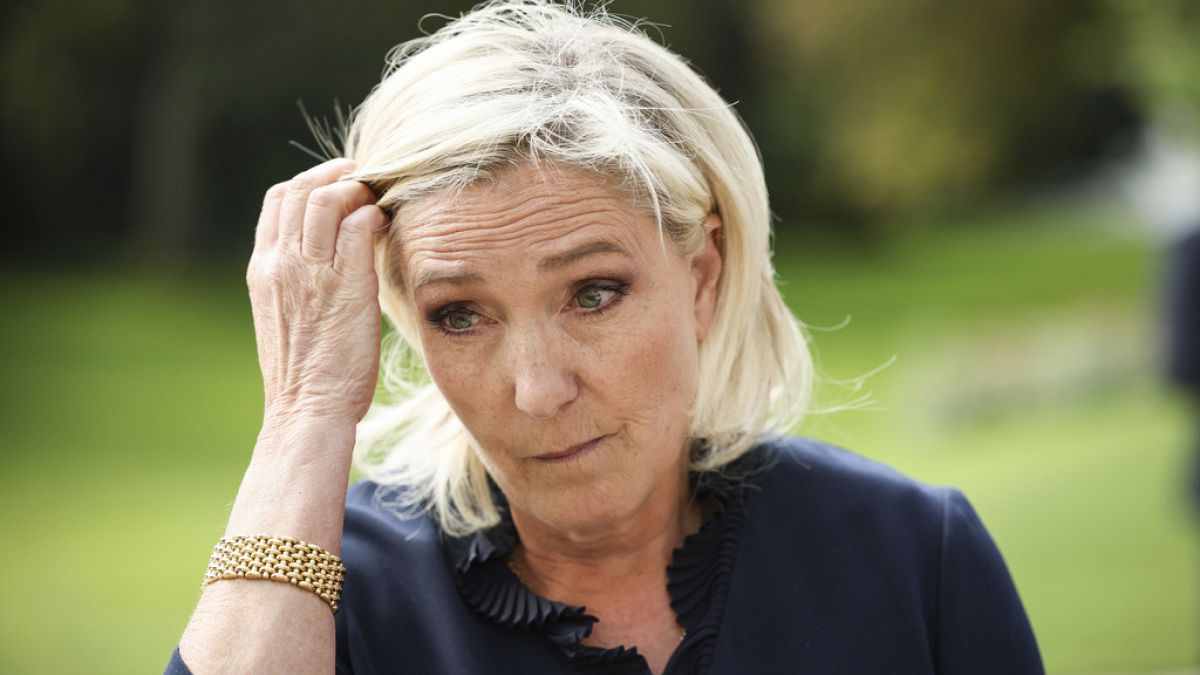The recent controversy surrounding Jean-Marie Le Pen’s association with a neo-Nazi band has sparked a heated debate in France. Despite being excused from a recent embezzlement trial involving his daughter Marine Le Pen and other staffers, the 96-year-old former leader of the National Rally (RN) found himself at the center of the scandal after video footage emerged of him singing along with the far-right rock group Match Retour in his home. The band, affiliated with the international neo-Nazi network “Blood and Honour”, is known for promoting violent actions to support the “survival of European races.” In the clip, a band member can be seen wearing a T-shirt glorifying the Hitler Youth, further adding fuel to the fire.
The clip showing Jean-Marie Le Pen singing along with the neo-Nazi band at his home has raised concerns about his political influence and associations. Despite his daughter Marine Le Pen’s efforts to distance herself from her father’s controversial image by rebranding the party as the National Rally, the recent incident has once again brought unwanted attention to the family’s far-right ties. Marine Le Pen has been quick to denounce the band and those who allowed them into her father’s house, accusing them of exploiting his frailty and alleged dementia. She has also announced plans to take legal action against the group for their inappropriate behavior.
The video showing Jean-Marie Le Pen singing along with the far-right rock group has reignited memories of his divisive political career, particularly his shock appearance in the second round of the 2002 presidential election in France. The controversial figure, known for his extreme nationalist views and xenophobic rhetoric, has long been a polarizing figure in French politics. His association with neo-Nazi groups such as Match Retour has only served to further tarnish his already tainted reputation, leading to widespread condemnation from across the political spectrum.
The footage of Jean-Marie Le Pen serenading by a neo-Nazi band has raised questions about his mental state and capacity to make informed decisions. Marine Le Pen’s statement suggesting that her father may not be fully aware of his actions due to possible dementia has added another layer of complexity to the situation. While some have expressed concern about the elderly former leader’s vulnerability to exploitation by extremist groups, others have criticized his continued involvement in far-right activities despite his advanced age and declining health.
The controversy surrounding Jean-Marie Le Pen’s involvement with a neo-Nazi band has sparked a broader discussion about the rise of far-right extremism in Europe. The band’s affiliation with the international neo-Nazi network “Blood and Honour”, which promotes white supremacist ideologies and calls for violent actions, has raised alarm bells among anti-racism activists and politicians alike. The incident has highlighted the ongoing threat posed by extremist groups operating under the guise of music and cultural movements, urging authorities to take swift action to combat hate speech and discrimination in all its forms.
As the fallout from the video showing Jean-Marie Le Pen singing along with the neo-Nazi band continues to unfold, the incident serves as a stark reminder of the persistent influence of far-right ideologies in contemporary society. While Marine Le Pen’s efforts to distance herself from her father’s controversial legacy may have been partially successful, the recent scandal has brought renewed scrutiny to the Le Pen family’s political affiliations and beliefs. As calls for accountability and transparency grow louder, the incident has underscored the importance of remaining vigilant against hate speech, discrimination, and extremism in order to safeguard democratic values and uphold human rights for all.











